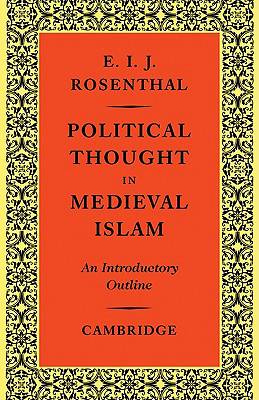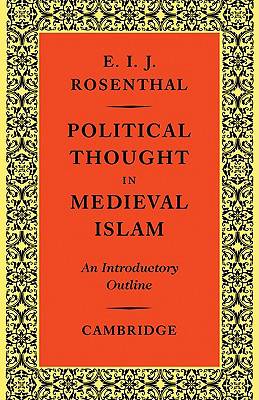
- Afhalen na 1 uur in een winkel met voorraad
- Gratis thuislevering in België vanaf € 30
- Ruim aanbod met 7 miljoen producten
- Afhalen na 1 uur in een winkel met voorraad
- Gratis thuislevering in België vanaf € 30
- Ruim aanbod met 7 miljoen producten
Zoeken
Political Thought in Medieval Islam
An Introductory Outline
Erwin I J Rosenthal, Rosenthal Erwin I J
Paperback | Engels
€ 89,45
+ 178 punten
Omschrijving
Muhammad founded a World-State as well as a faith; as Islam spread from its first centres, Muslim political thinkers had to apply the divinely revealed law of the Prophet to new circumstances. They had to relate new realities of power and authority to the ideal constitution which he had laid down and which his immediate successors had elaborated. Against this background Dr Rosenthal discusses the later Muslim philosophers who were influenced by the political thought of Plato and Aristotle. He shows how Greek thought modified the Islamic and yet was always subordinated to Muslim categories of thought and political needs. Dr Rosenthal thus surveys the chief traditions of Islamic political thought from the eighth to the end of the fifteenth centuries. He emphasises the basic unity given by the shared faith of the writers, without diminishing the individuality of each. Orientalists will welcome the book; so will historians of the medieval West, for it shows them the religious, political and intellectual positions underlying the expansion of Islam.
Specificaties
Betrokkenen
- Auteur(s):
- Uitgeverij:
Inhoud
- Aantal bladzijden:
- 340
- Taal:
- Engels
Eigenschappen
- Productcode (EAN):
- 9780521103350
- Verschijningsdatum:
- 19/03/2009
- Uitvoering:
- Paperback
- Formaat:
- Trade paperback (VS)
- Afmetingen:
- 140 mm x 216 mm
- Gewicht:
- 430 g

Alleen bij Standaard Boekhandel
+ 178 punten op je klantenkaart van Standaard Boekhandel
Beoordelingen
We publiceren alleen reviews die voldoen aan de voorwaarden voor reviews. Bekijk onze voorwaarden voor reviews.











